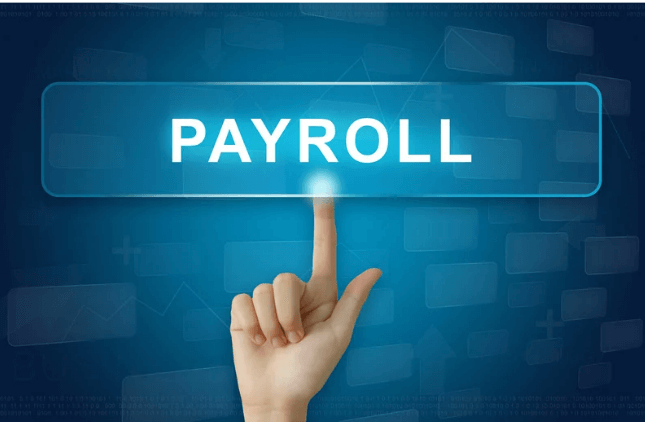Key Points:
1. Outsourcing accounting tasks can save you time and money, allowing you to focus on growing your business while skilled professionals handle bookkeeping, payroll, taxes, and financial reporting.
2. An outsourced accountant offers flexibility, handling everything from accounts receivable to tax compliance, adapting to your business’s needs as they change.
3. The expertise provided by outsourced accounting reduces the risk of costly errors and ensures compliance with tax laws, enhancing financial accuracy and security.
4. While outsourcing offers benefits like cost savings and scalability, it’s important to consider potential risks such as data security and maintaining control over financial operations.
Being an entrepreneur might put you in a situation where you must constantly monitor every aspect of your company and worry about something going wrong. Making sure your business grows as planned is a difficult task, but you are excellent at it. However, accounting is a universally applicable profession that doesn’t require your unique perspective, so you might be considering whether it’s more efficient to outsource accounting tasks of your company or not.
The outsourcing of accounts departments by larger companies is becoming common. Regardless of size, outsourcing can benefit companies in many ways. A great example is outsourced accounting, which can help with tracking and keeping accurate financial records.
Compared to hiring similar staff internally, using an outsourced accounting firm lets you engage highly skilled accountants while saving money and time. So, what are the responsibilities of an outsourced accountant, and what are its benefits? We will touch on every aspect in this article. So, let’s get started:
What Does Outsourced Accounting Services Mean?
When a business hires a third party or an individual to handle its accounting operations rather than using an internal accounting staff, this is known as outsourcing accounting. The client company’s accounting systems—bookkeeping, payroll, management accounting, taxes, accounts payable and receivable, financial reporting, debt collection, and other accounting-related duties—are managed by outsourced accountants.
It’s critical to realize that hiring a foreign firm isn’t required when outsourcing accounting services. Instead, it indicates that you are hiring a freelancer or professional accountant to manage your company’s accounting and compliance.
Let’s recap the responsibilities of an outsourced accountant. what services he should deliver to a company that hires him.
What Are The Responsibilities of an Outsourced Accountant?
Any company hiring an outsourced accountant must do certain jobs to fulfil its responsibilities. These Jobs are:
Bookkeeping
Bookkeeping takes a lot of work and requires continuous attention. However, outsourcing bookkeeping tasks has become simpler due to cloud accounting software. You can get comprehensive reports from outsourcing accounting responsibility that improve financial data transparency and help you make wiser business decisions.
Hiring an outsourced accountant to handle your bookkeeping will allow you to free up your resources and time by avoiding time-consuming procedures like:
• Payments and billing.
• Maintenance and renewal of subscriptions.
• Configuring the accounting program.
• Handling payroll costs.
• Ledger balancing.
• Consolidations involving many entities and currencies.
• Cash management.
Preparing financial statements
Accounting firms provide in-house and external financial data and report preparation expertise. CPAs will compile financial statements to show your income and expenses. Consequently, this aids in improving your cash flow management. They will also keep an eye on your accounting records to guarantee the integrity and accuracy of your financial records. They can also create financial reports for stakeholders, board members, and the general public.
Accounts Receivables and payables
Accounts payable and accounts receivable operations are often outsourced to guarantee on-time payments and collections. Additionally, an external AR/AP service can carry out tasks like:
- Handling vendor inquiries.
- Order control.
- E-billing and storage.
- Invoice approval.
- Expense tracking.
- E-payment acceptance.
- Billing and payments.
- Budgeting and reporting.
- Managing collections.
- Managing debt.
- Process control.
Controller services
By outsourcing your controller services, you can receive strategic assistance and guidance. Additionally, it can support proper financial analysis and reporting.
The following are common duties carried out by external controllers as an accountant:
- Management reporting.
- Adherence to policy and procedures.
- Transactional processing oversight.
- Analyzing cash flow.
- Audit reporting.
- Compliance management.
- Analyzing and preparing performance indicators.
- Evaluation of service or product efficiency.
- Enforcing cost-cutting measures and monitoring overhead charges.
- KPI reporting.
- Vendor and employee communication.
Cost Accounting
Since cost accounting establishes the real expenses of producing a good or service, it is a crucial component of accounting services. Manufacturing, supply chain, marketing, and research and development departments work closely with external cost accountants to aid with pricing strategies.
Planning and analyzing finances
You can get an in-depth evaluation of your company’s financial situation by outsourcing financial planning and analysis, enabling you to make more informed decisions.
All of your financial data is always available to you, and these tasks are concurrently managed effectively. These Tasks include:
- Process mining.
- Data gathering and analysis, integration assistance.
- Board and bank reporting assistance.
- Financial data analysis.
- Developing management reports.
- Investor communication and reporting.
- Budgeting, foresight, and planning.
- Reports on cash flow forecasts.
Forensic Accounting
Forensic accountants can assist in recovering your losses if your company has been the target of fraud or if your accounting contact left without keeping your accounts accurate and up to date. They can carry out several related duties, including recovering misplaced documents and recovering records.
Additionally, an external accountant can analyze your internal procedures to improve productivity, strengthen security, and protect assets from potential fraud.
Reporting and filing taxes
The right outsourced accounting company or outsourced accountant can guarantee that you stay updated on all applicable tax laws in your locality. By having CPAs file and report your taxes on time, the firm can help reduce the risk of accounting and financial calculation errors for your company.
An overview of the business tax preparation services that an outsourced accountant offers is as follows:
- Assisting taxpayers with tax collection, filing, remittance, and compliance.
- Franchise tax assistance.
- Compiling and paying payroll taxes.
- Preparation of the business’s federal and state income taxes.
- Tax planning to reduce tax burden and risk.
- Performing a compliance check on statements.
Payroll processing

When working with an outsourced accounting company, you will always have access to the most updated payroll processing software. This software could automate your payroll procedures once you input the necessary data. Remember that outsourcing payroll decreases your risk of being held accountable for fines or penalties caused by errors.
Benefits of outsourced accounting services
- It promotes cost savings. Outsourcing lowers your overhead costs by eliminating the need to pay for the wages of your in-house accounting staff and perks like health insurance, vacation time, and retirement plans. Additionally, accounting equipment and software prices are no longer a factor.
- It also provides expertise. Accounting errors can have severe consequences for a business, such as fines, problems with cash flow, and even an investigation by the IRS. But with outsourced accounting, you may work with a group of experts who guarantee the security and accuracy of your data.
- It enhances data security. One of the main concerns for outsourced accounting companies is data security. These companies usually use very expensive and complex security techniques to proactively safeguard their clients’ data in reaction to well-publicized issues brought on by security flaws and data breaches.
- They provide adaptability and scalability. Working with an outsourced accounting provider gives you a solution specifically customized for your company’s demands. You can easily add or delete accounting and financial duties to adapt to your changing demands.
Conclusion
Accounting is a crucial aspect of managing a company, but it’s also complicated, time-consuming, and demands specific knowledge and abilities. If you don’t know anything about accounting, you could make mistakes that are detrimental to your company.
Companies that opt to contract out the accounting duties benefit from a number of advantages. On the other hand, after outsourcing, the outsourced accountant must fulfill their duty with all the concentration and precision.
Frequently Asked Questions (FAQs)
Q.1: What is the role of an outsourced accountant?
Ans 1: All of the company’s financial operations, such as bookkeeping, payroll, financial reporting, management accounting, taxation, accounts payable, accounts receivable, debtor follow-up, and other account-related services, are managed by outsourced accountants.
Q.2: What are the risks of outsourcing accounting services?
Ans 2: Among these risks are Data security and confidentiality: When accounting operations are outsourced, confidential financial data can be shared with a third party vendor, creating concerns regarding potential security lapses, illegal access, or breached confidentiality.
Q.3: What is one negative effect of outsourcing?
Ans 3: Outsourcing also has certain drawbacks, like Loss of control. Adverse effect on workers. Risks to confidentiality and data protection.
Q.4: How do outsourcing companies make money?
Ans 4: Providing specialized services and expertise to companies that prefer to assign specific tasks or functions to outside experts is how an outsourcing company makes money. These outsourcing firms serve a wide range of industries, including customer service, IT services, sales, marketing, human resources, and more.
Also Read:




